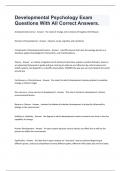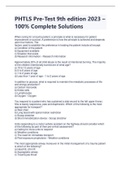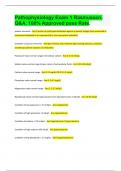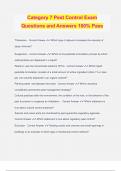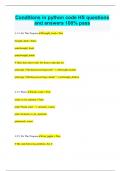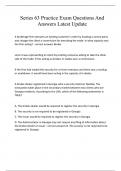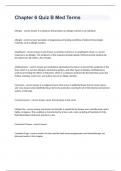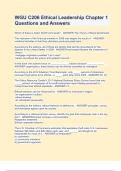Exam (elaborations)
Developmental Psychology Exam Questions With All Correct Answers.
- Course
- Institution
developmental science - Answer the study of change and constancy throughout the lifespan Domains of Development - Answer physical, social, cognitive and emotional Components of Developmental Science - Answer scientific process that uses the average person as a standard, applied knowledg...
[Show more]
